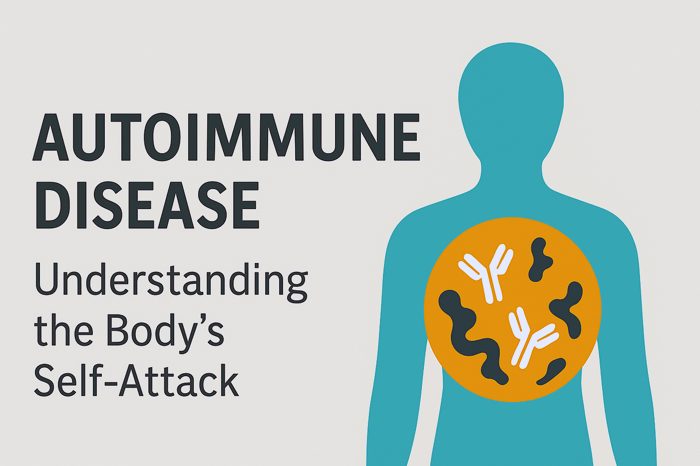What is Autoimmune Disease? Understanding the Body’s Self-Attack
By Dr. Rushikesh Trivedi, DNA Diet Specialist, Ahmedabad
The human immune system is an intelligent and powerful defense mechanism. It is designed to recognize and protect us against harmful invaders like viruses, bacteria, and toxins. But sometimes, this system misfires — it mistakenly attacks the body’s own healthy tissues, thinking they are foreign threats. This internal miscommunication is known as an autoimmune disease.
What is an Autoimmune Disease?
In simple terms, an autoimmune disease is a condition in which the body’s immune system begins to attack its own cells, tissues, or organs. Instead of defending the body, it becomes the aggressor — leading to inflammation, pain, and damage in the affected area.
There are over 80 different types of autoimmune diseases, and they can affect various organs, including the skin, joints, thyroid, pancreas, intestines, and even the brain.
Common Autoimmune Conditions
Some autoimmune diseases are more prevalent and recognizable:
- Type 1 Diabetes: Immune cells attack the insulin-producing beta cells in the pancreas, leading to high blood sugar.
- Rheumatoid Arthritis: A painful condition where the immune system targets the joints.
- Psoriasis: Rapid buildup of skin cells causes red, itchy, scaly patches.
- Hashimoto’s Thyroiditis: An underactive thyroid caused by immune system attacks.
- Graves’ Disease: The thyroid becomes overactive, resulting in weight loss, anxiety, and heat intolerance.
- Lupus (SLE): A complex disease that can affect the skin, joints, kidneys, brain, and other organs.
- Celiac Disease: An immune reaction to gluten damages the small intestine.
Why Does It Happen?
The cause of autoimmune diseases is not always clear, but certain factors increase the risk:
- Genetics: A family history of autoimmune conditions increases the likelihood.
- Infections: Some viral or bacterial infections are believed to trigger autoimmune reactions.
- Stress: Long-term emotional or physical stress can weaken immune regulation.
- Environmental Factors: Toxins, diet, and gut health may play a role.
- Hormonal Imbalance: Women are disproportionately affected, indicating a possible hormonal link.
Symptoms to Watch Out For
Autoimmune diseases can present differently, but there are some common symptoms:
- Unexplained fatigue
- Joint or muscle pain
- Skin rashes or pigmentation
- Digestive issues (bloating, cramps, or diarrhea)
- Recurring low-grade fever
- Hair thinning or hair loss
- Sensitivity to cold or heat
Symptoms may come and go in flare-ups or may remain chronic over time.
The Role of Personalized Diet in Autoimmune Health
While medications help manage symptoms, diet and lifestyle modifications play a powerful role in controlling inflammation and strengthening the immune response.
At DNA Diet Clinic, we understand that every body is unique — especially when dealing with complex autoimmune conditions. A DNA-based nutrition plan takes into account your genetic markers, immune responses, inflammation tendencies, and metabolism. With this data, we craft a customized dietary path that supports healing, reduces flare-ups, and promotes energy and wellbeing.
Many autoimmune patients unknowingly worsen their condition through improper diets. For example:
- Gluten and dairy can trigger symptoms in many autoimmune cases.
- Processed foods and refined sugar often increase inflammation.
- Nutrient deficiencies (like Vitamin D, B12, Omega-3) are common in autoimmune patients and must be corrected.
Our DNA-based approach helps identify such sensitivities early and supports you with a precise, healing diet.
Final Words
Autoimmune diseases can be lifelong, but they don’t have to define your life. With proper diagnosis, treatment, and personalized lifestyle guidance, you can regain control over your health.
If you’re experiencing persistent, unexplained symptoms, don’t ignore them. Let science guide your healing.
📞 Book your consultation with Dr. Rushikesh Trivedi at DNA Diet Clinic, Ahmedabad
Call: 099133 30931


